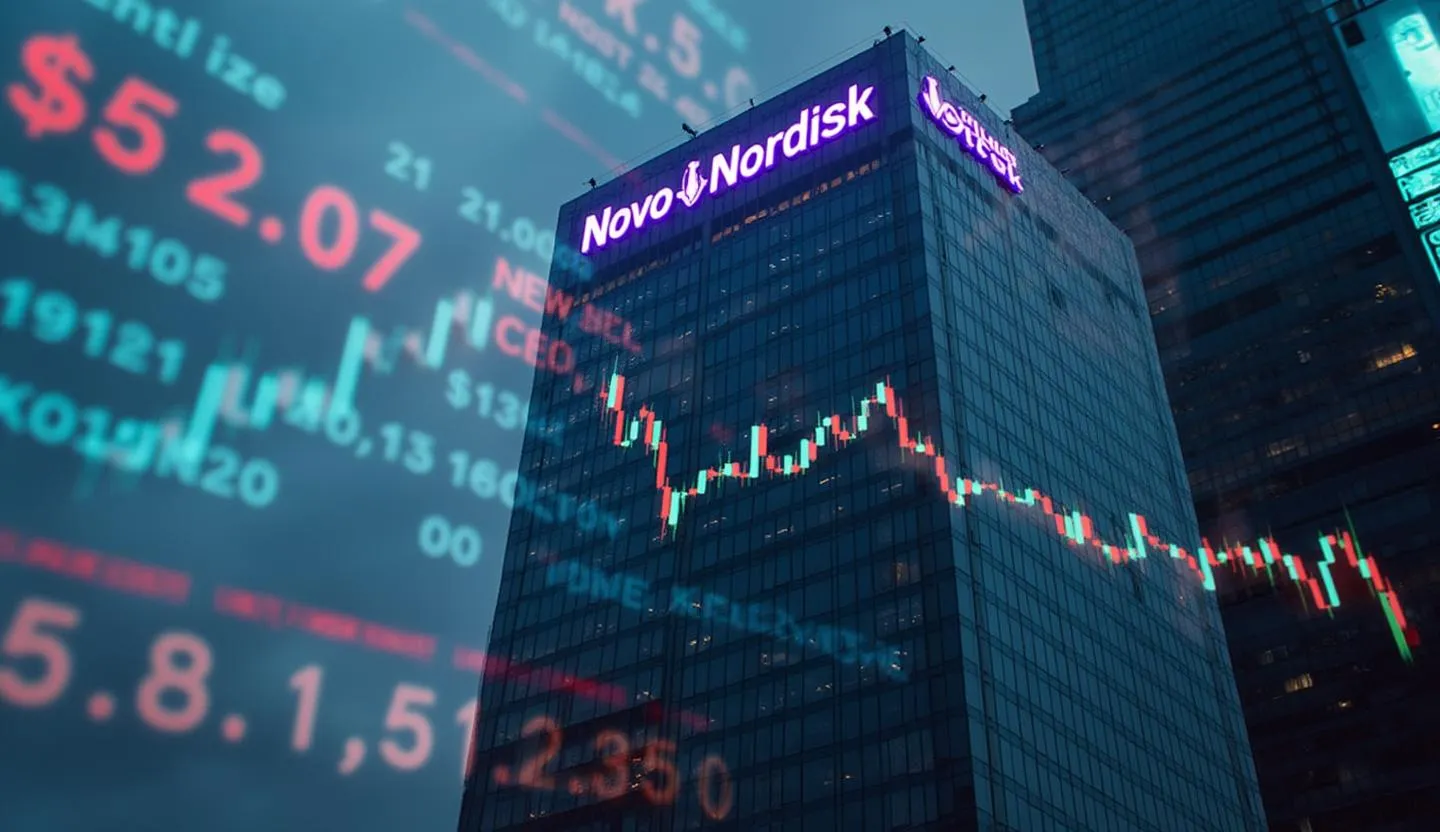Barclays cuts Novo Nordisk to 'Equal Weight' as competitive headwinds and profit warnings pressure the pharma giant.
Novo Nordisk (NVO), a global leader in diabetes, obesity, and rare disease therapeutics, has long been a darling of the pharmaceutical sector. Renowned for its blockbuster GLP-1 drugs and pioneering treatments, the Denmark-based company has commanded a premium valuation thanks to robust growth and innovation. But Barclays' latest downgrade from 'Overweight' to 'Equal Weight' signals a significant shift in sentiment—coming at a time when Novo's share price has tumbled and its future looks less certain amid new competitive threats, leadership changes, and a revised outlook.
Analyst upgrades and downgrades matter because they reflect deep institutional research and can shift market sentiment, particularly when issued by influential firms like Barclays. For investors, downgrades from heavyweight analysts often serve as a critical warning to reevaluate risk and upside potential.
Key Takeaways
Barclays downgrades Novo Nordisk, citing competitive and execution risks.
Stock has dropped over 20% recently, wiping out $70 billion in market value.
GLP-1 competition intensifies, with guidance cut and new CEO at the helm.
Analyst confidence weakens as price targets are withheld, underscoring uncertainty.
RSI and price trend data indicate the stock is technically oversold, but sentiment remains cautious.
Recent news highlights both business resilience and market skepticism, with calls for innovation beyond weight-loss drugs.
Barclays' Downgrade: A Signal That Can't Be Ignored
Why Barclays' Call Matters
Barclays, a global investment bank with deep expertise in healthcare and pharmaceuticals, wields outsized influence in institutional circles. The move from 'Overweight' to 'Equal Weight' reflects a marked change in conviction. Barclays' analysts have historically been constructive on Novo Nordisk, but today's downgrade—following a profit warning, heightened U.S. competition, and a CEO transition—sends a clear message: upside is no longer obvious, and risks are rising. The absence of a new price target further underscores their caution, suggesting Barclays sees mounting unpredictability in Novo's near-term trajectory.
"Shares in Wegovy maker Novo Nordisk continued to slide on Wednesday as analysts warned of persistent competition from copycat drugs in the U.S., a day after a profit warning and the naming of a new CEO prompted investors to wipe $70 billion off the drugmaker's value."
— Reuters, July 30, 2025
Barclays’ downgrade is weighted not just by the firm’s analytical rigor, but by its sector expertise and market influence—making this shift more than just another analyst note.
Stock Performance and Market Reaction: A Slide with Technical Implications
Novo Nordisk's shares have been under intense pressure. The current price hovers near $52.07, down sharply from a recent close of $53.94, and far off its 1-year high of $139.74. The stock is down over 20% in the past month following a combination of profit warnings, guidance cuts, and leadership changes.
Technical Indicators:
Recent RSI: 21.96 (deeply oversold territory, typically signals investor panic or capitulation)
20-day EMA/SMA: Both around $66, indicating shares are trading well below recent moving averages
1-year Price Trend: Down ~65% from peak; sentiment ratio of 0.46 (more down days than up days)
Average Daily Volatility: 1.96%—volatility is elevated, reflecting investor uncertainty
These technical readings suggest the sell-off may have overshot fundamentals, but the lack of a new price target from Barclays implies hesitation to call a bottom.
Recent News: Risks, Opportunities, and Cautious Optimism
Recent headlines paint a complex picture:
Seeking Alpha argues that despite a 20%+ drop, Novo's core business remains strong, with diversified revenues and a robust R&D pipeline. Rare disease and oral semaglutide segments are delivering growth, but the market remains fixated on near-term GLP-1 pressures and execution risk.
Reuters highlights the scale of investor reaction: $70 billion in market cap erased after profit warning and the appointment of a new CEO.
CNBC Television features BMO's Evan Seigerman, who notes, "Novo Nordisk needs something new, outside of weight-loss drugs," echoing Wall Street's call for broader innovation.
"Despite increased GLP-1 competition and lowered guidance, Novo Nordisk continues to grow, expand its market share, and generate robust cash flow. The company's rare disease and oral semaglutide segments are showing promising growth, with a strong R&D pipeline supporting future expansion."
— Seeking Alpha, July 30, 2025
Financial Health: Resilience Amid Volatility
Novo Nordisk has a history of strong revenue growth, high margins, and disciplined capital allocation. Its GLP-1 franchise (Ozempic, Wegovy) remains a cash cow, but the company’s ability to maintain momentum now faces fresh scrutiny. Recent guidance cuts signal management's caution, and the market is recalibrating expectations accordingly.
Revenue Growth: Still positive, but guidance trimmed due to U.S. competition and pricing headwinds
Profitability: Historically robust, but under pressure as new competitors launch biosimilars/generics
Balance Sheet: Remains strong, supporting ongoing R&D and potential M&A to diversify beyond weight-loss
What Comes Next for Investors?
The Risk-Reward Equation Has Shifted
Barclays’ downgrade is more than a reaction to technicals—it’s a reflection of deteriorating visibility. With no new price target, the firm signals that upside is unclear and that downside risk could persist if Novo's management fails to respond effectively to new threats. Yet, with the stock technically oversold and fundamental strengths still present, some contrarian investors may see opportunity—provided they are comfortable with near-term volatility and execution risks.
DeepStreet.io Perspective
Short-term: Expect continued volatility as investors digest new guidance and await signs of execution from the new CEO
Medium-term: Watch for updates on R&D, new product launches, and management’s ability to defend share in the U.S.
Long-term: If Novo Nordisk can leverage its R&D engine and diversify beyond GLP-1, the recent sell-off could prove a rare entry point. But for now, caution is warranted.
Conclusion
Barclays’ downgrade of Novo Nordisk from 'Overweight' to 'Equal Weight' is a wakeup call for investors amid tumbling shares, competitive threats, and a management transition. The absence of a new price target underscores deepening uncertainty. While Novo’s core business and pipeline remain strong, the market is demanding proof that the company can adapt—and soon. For investors, this is a time for vigilance and discipline, not blind dip-buying.

.svg)
.svg)
.svg)
.svg)

.svg)

.svg)
















